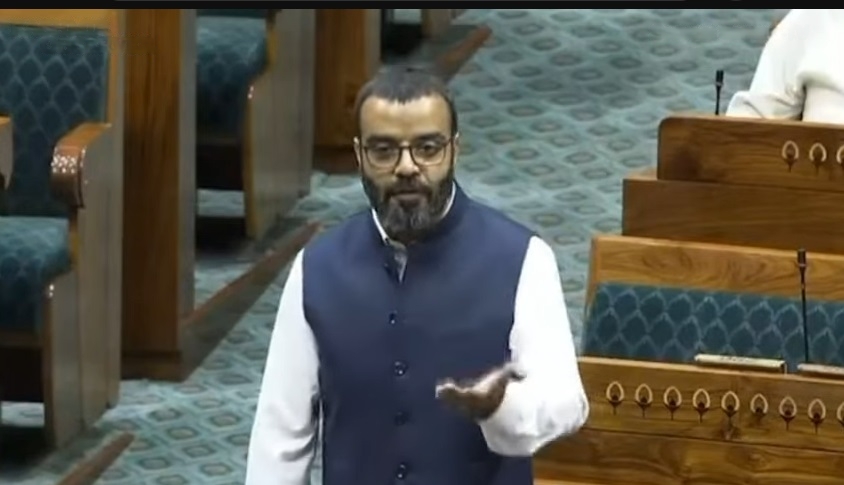Vande Bharat Train to Kashmir: Political Promises Vs Reality
The much-anticipated Delhi-Srinagar Vande Bharat Express, which was initially scheduled to launch on January 26, continues to face indefinite delays, raising serious concerns among Kashmiri commuters and political representatives alike. National Conference (NC) Member of Parliament Aga Syed Ruhullah Mehdi has strongly criticized the government over its failure to deliver on its commitments regarding improved railway connectivity for Kashmir.
Speaking in Parliament, Mehdi questioned the repeated postponements, citing the lack of transparency in the project’s timeline and the unnecessary inconvenience it is causing to Kashmiri passengers. The MP emphasized that while the government had enthusiastically announced the project, its repeated failure to meet deadlines has only added to public frustration.
Broken Promises: Kashmiri Commuters Left in Limbo
The promise of a seamless Vande Bharat train service between Delhi and Srinagar had instilled hope among Kashmiris looking forward to better rail connectivity. However, with continued delays and unconfirmed launch dates, passengers are left to deal with uncertainty. According to recent reports, rather than providing a direct service to Srinagar, the government may implement a train switch at Jammu or Katra. This potential arrangement has further aggravated concerns about accessibility and efficiency.
“Why are Kashmiris being subjected to unnecessary inconvenience? If extreme winter conditions are being used as an excuse for the delay, it is worth noting that harsh winters last only 40 days, yet the issue has persisted throughout the year,” Mehdi argued. He pointed out that regions across India with far worse weather conditions continue to receive uninterrupted railway services, raising doubts over the government’s actual intent regarding Kashmir’s railway infrastructure.
Forced Development vs. Public Demand: Mehdi’s Strong Allegations
In addition to voicing concerns over the Vande Bharat delay, Mehdi took aim at the government’s broader railway expansion policies in Jammu and Kashmir. He alleged that the government has been prioritizing “forced infrastructure projects” while sidelining genuinely high-demand initiatives such as the Rajouri-Poonch and Sopore-Kupwara railway lines.
One of the most controversial aspects of this development, according to Mehdi, is the displacement of Kashmiri farmers and fruit growers under the pretext of land acquisition for railway expansion. He accused the authorities of conducting land surveys and seizing orchards without fair compensation, thereby endangering the livelihoods of thousands of people in the valley.
“If railway expansion is truly aimed at benefiting the people, why is the government ignoring long-pending public demands while pushing projects that have no local backing?” Mehdi questioned. He urged the government to focus on real infrastructural needs rather than imposing development plans that disrupt Kashmir’s agricultural economy.
Kashmir’s Connectivity Challenges: A Historical Overview
Kashmir’s railway connectivity has long been a subject of political debate. Despite multiple promises, the region remains largely disconnected from the national railway grid, with the Udhampur-Srinagar-Baramulla Rail Link (USBRL) project witnessing decades of delays. While sections of the railway line have been completed, full-fledged operations between Srinagar and other major Indian cities remain a distant dream.
Experts argue that political instability, bureaucratic red tape, and lack of sustained funding have all contributed to the slow progress of railway projects in Jammu and Kashmir. The Delhi-Srinagar Vande Bharat was supposed to be a step forward in addressing these challenges, yet its prolonged delay has reinforced skepticism regarding the government’s commitment to Kashmir’s infrastructural development.
Government’s Response: A Deafening Silence?
Despite mounting criticism, the government has yet to provide a clear explanation for the repeated delays of the Delhi-Srinagar Vande Bharat train. Transport officials have cited technical and climatic challenges, but these justifications fail to hold ground given the efficiency with which similar projects have been executed in other parts of India.
Meanwhile, Mehdi has called for immediate transparency in the project’s status and a clear, publicly accessible timeline for its launch. “People deserve to know when they can finally expect the promised railway service. This isn’t just about connectivity; it’s about trust and accountability,” he stated.
What Lies Ahead?
The delay of the Delhi-Srinagar Vande Bharat train is more than just an infrastructural setback—it is a reflection of broader governance issues in Kashmir. While the project continues to hang in uncertainty, thousands of passengers remain at the receiving end of broken promises and logistical difficulties.
With pressure mounting on the government to act, the coming months will be crucial in determining whether Kashmiris will finally see improved railway connectivity or if this remains another unfulfilled political pledge.


